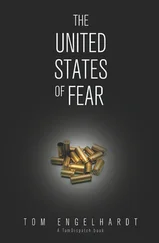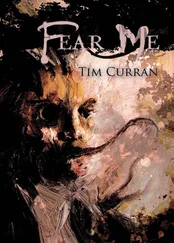With the girls who caught my eye.
And then one day a letter came
And then my spirits fell.
It read, “Oh Rastus, hurry home;
Old Master is not well.”
I thought of dear old happy days,
Of all the times we had;
I packed my trunk and headed South;
I thought I would go mad.
It was a soft and sunny day
When I hobbled through the gate.
Dear old Mistress greeted me,
“Praise God, you’re not too late.”
Up the stairs we fairly flew
To Master’s sad bedside.
And when I met him lying there,
Old Mistress, how she cried.
But Master, hearing Rastus’ voice
His eyes he opened wide.
“Oh Lord, my prayers are answered!”
And drew me to his side.
“I thought that I should never see
Another happy day,”
He said through shining, blessed tears,
And then he passed away.
And now I live and ne’er shall leave
And never shall I roam.
I’ll serve my dear old Mistress
’Til God shall call me home.
There were no hoots or hollers now. All faces were turned to the stage as if toward the setting sun, full of wonder, nostalgia, regret, several of the men weeping openly.
The show went on. Henry sat still as a tombstone in his chair, staring out into the hall like a half-wit. I saw one or two audience members take tentative note of him. He was perspiring, and the rim of his crushed top hat showed a darkened line of dampness along the base of the crown. We next tore into “De Boatman Dance,” always a crowd-pleaser. One man, near the front, kept a close watch on whatever the lead performer was doing, and he appeared to be acting out in his own mind what he saw on the stage; emotions of pathos and mirth alternated, as if his face were controlled by the actions of the line. When Eagan sang “Boatman,” the fellow sang along on the chorus—
. . Hi ho, the boatman row
Down the river, the Ohio. .
— slamming his hands on the back of the seat in front of him, which caused that seat’s occupant to give him a remonstrative glare until he stopped. The man sitting next to him watched with a perfectly blank face, eyes wide, as if transfixed by a vision. Men swung their arms in time to the music, stomped on the floorboards, one man in the aisle danced a jig. On every face was reflected some aspiration, as if we in the line were liberating something in them, giving shape and voice to some hope or memory, some longing or wonder; they were like children watching a puppet show. In some, a strange anger mixed with the high spirits. One woman — there were very few women in the house — stood on a seat and hollered, “ You big black nigger! You God damn nigger! ” until the man next to her pulled her down, to their neighbors’ riotous laughter.
What Henry could have made of all of this was anyone’s guess. If he thought anything at all, he gave no sign, as he sat there with a look of pure idiocy on his face. On we played, Eagan on the fiddle, myself on the bones, Mulligan on the banjo. . ourselves and yet not ourselves anymore, either — or had we in fact become our true selves, Scamp, Neckbones, Bullfrog? Who could say? We played and sang and danced under the audience’s gaze, like five moons reflecting the sun’s light, our other half hidden in unfathomable darkness.
Powell finished singing—“ I likes my hoe cakes brown in de mornin’ .” During the applause, I happened to glance toward the wings stage right, where I saw Gilman and, next to him, Rose, wearing a big smile. It was rare for her to watch a performance. Now Mulligan moved his chair slightly forward and it was my turn to announce him to the audience.
“ Kind peoples ,” I said, “ now de great Bullfrog Johnson is gwine to preform de ‘Cornshuckin’ Jig’! ”
“ Thank you, Brudder Neckbones ,” Mulligan said, launching into the virtuoso piece. He really poured it on, making all kinds of flourishes on the banjo, much to the crowd’s vocal appreciation. I was sure this was a kind of preemptive show of dominance aimed at Henry. Rose was laughing and hollering encouragement to Mulligan.
There was a sudden ripple of disturbance in the audience, attention toward stage right, and I turned and saw that Henry had collapsed in his chair. He was bent forward, his right leg thrown out in front of him. This alarmed me terribly, but a moment later I saw him snap back up exactly into his previous position, with the vacant expression on his face.
This attracted an audible reaction from the audience. Now I kept one eye on him as I clacked along with Mulligan, who had no idea what was causing the murmuring in the hall. Rose stood, in the wings, watching Henry with her hand over her mouth and an astonished expression on her face. Mulligan now returned to the song’s first strain and executed one or two extravagantly ornamented variations. As he did so, Henry collapsed again, like a decommissioned marionette, throwing out his left leg now, and twisting to that side. Again he held still for a moment, then snapped back up into position.
Now a rise of laughter and quickened attention came off the audience, although the other men in our line, with their backs to Henry, had no idea of the source of the disturbance. Many eyes had shifted away from Mulligan to Henry. Sensing that something was afoot, Mulligan turned his head, but Henry was once again still as a statue, and he remained that way until the end of the song.
Another number, a fiddle feature for Eagan, was scheduled before Demosthenes Jones was to make his official debut, but under the circumstances I thought it best to initiate Henry’s routine immediately. I would hear about it later from Eagan, I knew, but I saw little choice.
After Mulligan had finished and was taking his bows — to larger applause than usual — a voice from the back of the theater hollered, “ Who’s the nigger with the St. Vitus Dance? ” A swell of approval ensued. I gave Powell the nod, and he stepped into the moment.
“Why, Brother Neckbones — who is dat nigger sittin’ there watchin’ while we does all de work?”
Widening my eyes and craning my neck around to regard the still-seated Henry, I replied, “ Why, Brother Cornbread, don’t you know? Dat’s Demosthenes Jones, de greatest banjo player what ever played. He is mute as a tree stump and twice as dumb, but he can play de banjar better than anyone! ”
“Not better than Bullfrog Johnson!”
“ I says he can! ” chimed in Burke.
“ He can’t! ” Powell insisted.
We all started shouting at one another. Eagan, clearly steamed that he had been shouldered out of the way — I could not blame him — was the least enthusiastic of our line. Finally I waved my arms, saying, “ Silence! Quiet yo’selves! Dere is one way to find out for sure. Let him play us a banjo tune and den we’ll see. ”
Nods, vocal approval.
“ Demosthenes! ” I called.
Silence. I looked in his direction and saw Henry apparently asleep in his chair. He had improvised this comic twist on the spot, and the audience responded with laughter.
“ DEMOSTHENES! ” I shouted. “ Wake up befo’ I come over dere and hit you wit dis old jawbone. ”
Henry pretended to awaken with flailing movements, startled.
“Play us a song on de banjar so we can settle once for all who is de greatest banjar player in de land.”
Читать дальше










